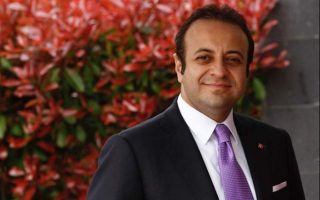UNESCO weighs in on controversy over Hagia Sophia

In response to the intention announced this week by Turkish President Recep Tayyip Erdogan to turn the Hagia Sophia monument – originally a Byzantine Christian cathedral and now a museum – into a mosque after his country’s local elections on Sunday, UNESCO sources cited by the Greek media clarified on Wednesday that changing the World Heritage site’s status would require approval by the Paris-based organization.
The 6th century Hagia Sophia was the main seat of the Greek Orthodox Church and was turned into a mosque following the Ottoman conquest of Istanbul – then Constantinople – in 1453. It became a museum in 1935.
Erdogan revisited the issue on Wednesday, saying his suggestion to convert the monument into a mosque is a response to US President Donald Trump’s decision to recognize the Golan Heights which Israel gained in 1967 from Syria as Israeli territory. He also vowed that “Constantinople will never exist again.” “The name of this area is Islambol (full of Islam) and you know that,” he said.
For its part, Athens has attributed the spike in incendiary rhetoric and the surge in violations of Greek airspace to the political uncertainty in Turkey stemming from this Sunday’s elections.
Turkey’s belligerent stance was on full display on Monday, with multiple airspace violations just a hours after the Greek Foreign Ministry lodged a demarche to protest against the harassment of the helicopter Prime Minister Alexis Tsipras was traveling in.
There was no letup up on Wednesday as Turkish jets conducted multiple airspace violations in a region spanning the northern Aegean and the Eastern Mediterranean.
New Democracy shadow foreign minister Giorgos Koumoutsakos said the violations made it “clear that Ankara does not wish for a de-escalation of tension but continuously wants more Greek concessions.”





